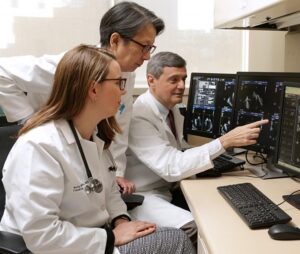Cases of publication bias and misconduct in the medical care domain are not new things. However, such incidents often do not muster enough attention due to the absence of evidence. Recently, a study has offered substantial evidence supporting publication bias and scientific misconduct related to the field of cardiovascular research.
These outcomes have certainly iterated new questions and curiosity about the domain’s efficiency and integrity. The survey gathered data from more than 160 authors from 8 imaging journals belonging to the cardiovascular domain.
The Study
The consolidated data got published in the journal, Clinical Imaging on 2nd February. According to the data, over 20% of the respondents mentioned having witnessed scientific manipulations and fraud within the departments they worked in.
On the other hand, 85% of the respondents also mentioned that within the last 5 years, they have come across cases of publication bias as well.
The Findings
Thomas C. Kwee and Maan T. Almaghrabi work at the University of Medical Center Groningen. Robert M. Kwee works at Zuyderland Medical Center. The three researchers authored the new paper which has surely compelled the medical care sector to think twice.
The authors further mentioned that the existence of scientific misconduct can be rare but whenever it is found, it comes with unavoidable, grim repercussions. The trio further remarked that the data published through the research study which talks about such discrepancies in the medical care domain should be out and out reliable and authentic.
Otherwise, the researchers doubt that patient outcomes might suffer unnecessarily costing the healthcare sector its efficiency and productivity.

The Procedure
The study that considered responses from experts included participants with more than 10 years of experience in academic positions. They also focused on the fact that the practice of crediting co-authors in exchange for contributions is also not absent in the ecosystem.
Many of them managed to cite cases where co-authors took the credit unduly. The respondents also highlighted the issues like career pressure and economic burdens as some reasons for such misconduct, publication biases, unfair practices, and undue co-author credits.
One of the respondents also mentioned that the current system of data collection is more likely to suffer from problems such as fabricated data, false data, partial reporting, and so forth, owing to many reasons.
These reasons may include economic issues (therapy marketing, grant application, etc.), the need to publish for career growth and to gather more funding, or the enormous boost in the opportunity to publish, consequent upon the steady rise of the “pay to publish” practice.
The authors also suggested that many practitioners do not get professional and standardized training related to fraud and scientific misconduct as an integral part of the curriculum.
Therefore, there could many respondents who might not have been aware of any misconduct or malpractice at all. Hence, the risk of underestimating the real volume of such practices always remains high. When people do not know what they should call unfair, several practices pass through their moral filters uninterruptedly.
Therefore, the researchers suggested that universities and institutions should promote widespread awareness to make people see through the discrepancies.
Even though multilayered problems do exist in published content of cardiovascular imaging, the overall confidence level the published content of this domain enjoys remains quite considerable. Respondents, despite highlighting the problems, gave a generous score of 8 out of 10 for such published content.
At SepStream®, quality gets priority over all else. We believe in making the medical caresector services more efficient and dependable. Therefore, our collection of software solutions featuresthe latest technology for flawless imaging. Check our extensive gamut of affordable solutions to take your medical care facility’s performance t the next level.